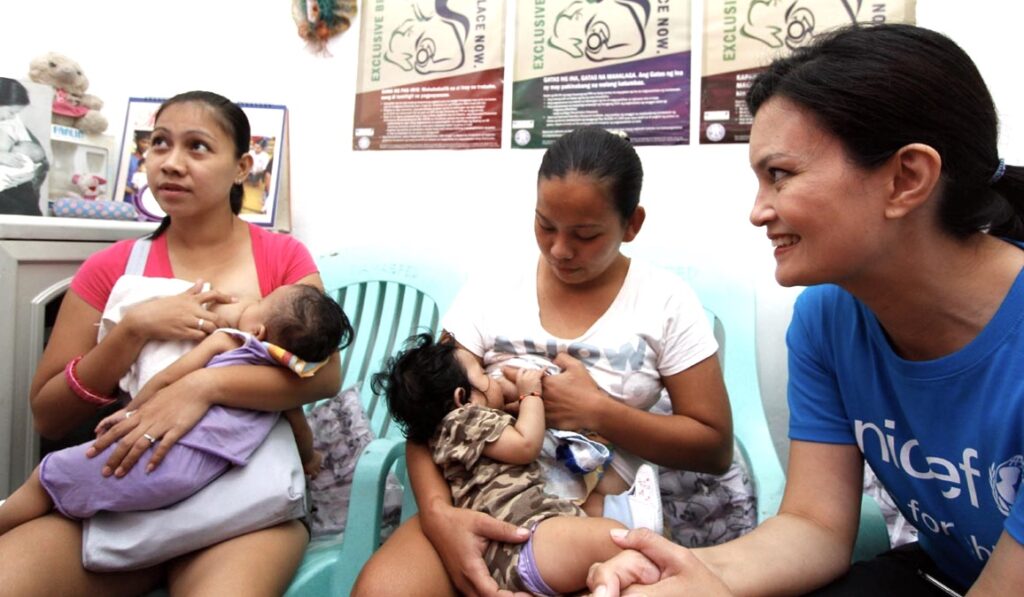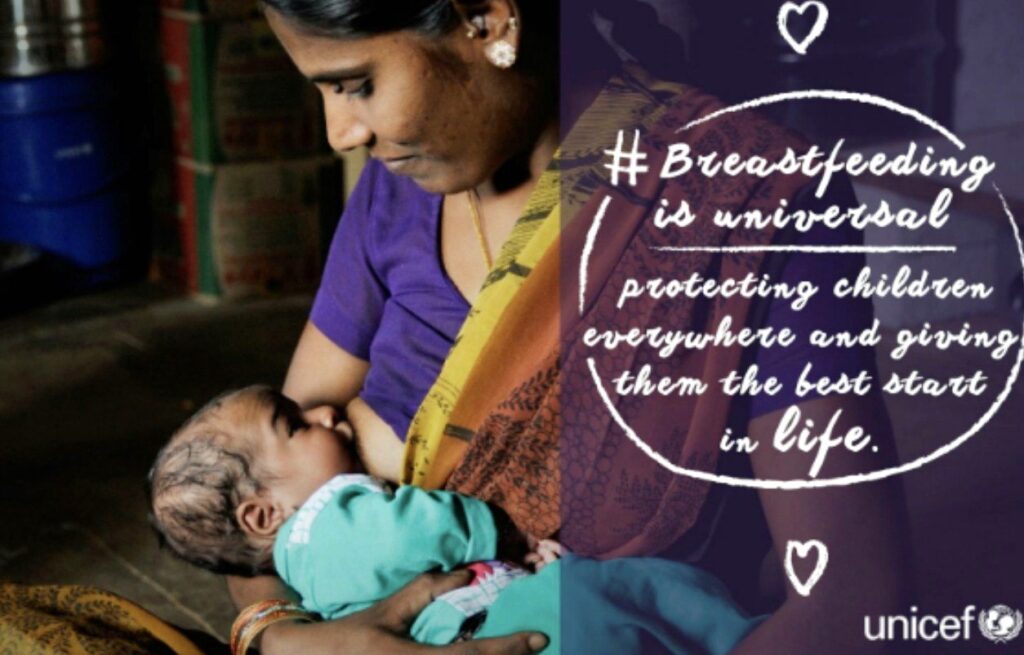MOTHER’S MILK: BEST FOR BABIES
By Henrylito D. Tacio
Photos courtesy of UNICEF
“Breastfeeding provides every child with the best possible start in life. It delivers health, nutritional and emotional benefits to both children and mothers. And it forms part of a sustainable food system. But while breastfeeding is a natural process, it is not always easy. Mothers need support – both to get started and to sustain breastfeeding.”
This was the joint statement issued by two United Nations agencies – the UN Children’s Emergency Fund (UNICEF) and the World Health Organization (WHO) during the World Breastfeeding Week (WBW), which is celebrated every August 1-7 in commemoration of the 1990 Innocent Declaration.
Starting in 1992, WBW is a global campaign to raise awareness and galvanize action on breastfeeding themes. Its annual themes include healthcare systems, women and work, community support, ecology, economy, science, education, and human rights. This year’s theme is: “Support breastfeeding for a healthier planet.”
In line with this theme, WHO and UNICEF call on governments to protect and promote women’s access to skilled breastfeeding counseling, a critical component of breastfeeding support.
“Skilled counselling services can ensure that mothers and families receive this support, along with the information, the advice, and the reassurance they need to nourish their babies optimally,” the two UN agencies said in a statement.
“Breastfeeding counselling can help mothers to build confidence while respecting their individual circumstances and choices. Counselling can empower women to overcome challenges and prevent feeding and care practices that may interfere with optimal breastfeeding, such as the provision of unnecessary liquids, foods, and breastmilk substitutes to infants and young children,” the two agencies added.
Studies have shown that improving access to skilled counseling for breastfeeding can extend breastfeeding duration and promote exclusive breastfeeding, with benefits for babies, families, and economies.
As studies have found out, increasing rates of exclusive breastfeeding could save the lives of 820,000 children every year around the world, which would generate the US $302 billion in additional income.

In the midst of the coronavirus disease 2019 (COVID-19) pandemic, the United Nations health agency urged mothers to continue breastfeeding their children. They need to, as it is the right thing to do.
COVID-19 is caused by SARS-CoV-2, the coronavirus that is a distant cousin of Severe Acute Respiratory Syndrome. “(The virus that can cause infection) has not, to date, been detected in the breastmilk of any mother with confirmed/suspected COVID-19,” the UN agency bared in a five-page document which Health and Lifestyle obtained.
“It appears unlikely, therefore, that COVID-19 would be transmitted through breastfeeding or by giving breastmilk that has been expressed by mother who is confirmed/suspected to have COVID-19,” it said, adding that researchers continue to test breast milk from mothers with confirmed/suspected COVID-19.
Breastmilk saves children’s lives as it provides antibodies that give babies a healthy boost and protect them against many childhood illnesses. After all, breastmilk, the UN health agency explains, is more than a simple collection of nutrients. It contains all the essential nutrients like protein, fats, vitamins, minerals, enzymes, and sugars, in exact proportion. It meets the needs of the growing infant at every stage.
“Early and exclusive breastfeeding for the first six months of a child’s life reduces child mortality and has health benefits that extend into adulthood,” explains the Healthy Newborn Network (HNN).
“Breastfeeding benefits not only the child but the mother and family also, as it is free of cost and reduces the risk of infection in newborns, enhances neurodevelopment, and reduces the risk of acquiring certain non-communicable illnesses in adulthood,” HNN adds.
The HNN says that breastmilk substitutes and animal milk (from cattle, carabao, and goats) not only lack essential immune-building components they also expose the infant to an increased risk of infection and morbidity.

Dr. Hiroshi Nakajima, former director-general of the World Health Organization (WHO), described breast milk in these words: “The sole truly universal food for the entire human species.”
Dr. Nakajima said breast milk, until recently, has served as “a vital link for nutrition and survival across the entire span of human existence, nurturing the newborn, the infant, and the young child during the most vulnerable years, all the while providing a powerful source of protection from infectious disease.”
Breast milk, the United Nations health agency explains, is more than a simple collection of nutrients. For thousands of years, in all continents, babies have been breastfed for a simple reason: mother’s milk is natural.
“Mother’s milk is a living substance of great biological complexity that not only provides unique protection against disease, but also stimulates the baby’s own immune system,” the WHO points out.
The WHO recommends exclusive breastfeeding for the first six months of life, after which “infants should receive nutritionally adequate and safe complementary foods while breastfeeding continues for up to two years of age or beyond.”
The American Academy of Pediatrics pointed out the importance of breastfeeding. It said: “Extensive research using improved epidemiologic methods and modern laboratory techniques documents diverse and compelling advantages for infants, mothers, families, and society from breastfeeding and use of human milk for infant feeding. These advantages include health, nutritional, immunologic, developmental, psychologic, social, economic, and environmental benefits.”
Babies easily digest breast milk, so they don’t have to face the problem of constipation. Breastfed babies rarely have ear or respiratory system infections, allergies, stomach problems like diarrhea and vomiting.
According to a study in the Archives of General Psychiatry, children who were breastfed exclusively for at least three months had better intelligence scores later in life than those who received formula.
“A woman’s body is a sacred temple,” wrote Suzy Kassem, author of Rise Up and Salute the Sun. “A work of art, and a life-giving vessel. And once she becomes a mother, her body serves as a medicine cabinet for her infant. From her milk she can nourish and health her own child from a variety of ailments.”
When one’s own mother’s milk is not available, the WHO and UNICEF promote the use of pasteurized donor human milk as the second option in preference to formulas. However, WHO has particularly specified that the “recommendation (is) relevant for settings where safe and affordable milk-banking facilities are available or can be set up.”
“The use of formulas as the next option requires counseling the mothers and families on their proper and clean preparation,” the HNN states. “The use of preterm formulas should only be recommended when the baby is not gaining weight on standard formula and if it can be affordable.”
For babies smaller than 1,500 gm birth weight, the WHO recommends adding vitamin D, calcium, phosphorus, and iron supplements.

